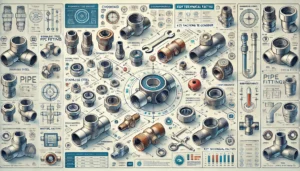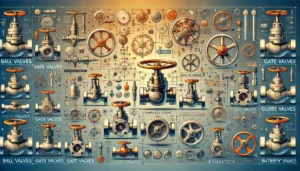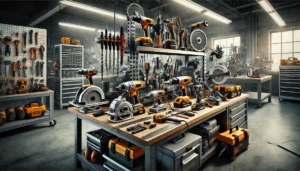In the sphere of oil and gas, the term sour service is of utmost importance as it has a lot to do with health and safety as well as the functioning of the equipment and the highlights. According to sour service definition all process fluid that come in contact with hydrogen sulphide (H₂S) are declared sour service. Environments where the H₂S gas is present are dangerous and can compromise the safety of equipment and people or even cause environmental destruction as according to NACE MR0175 standards, the presence of H₂S is corrosive.
What Describes Sour Service?
Sour service also know as H2S sour service or wet h2s service implies those process fluid that contain H2S gas, a gas that is colorless and flammable with a very unpleasant smell and is extremely toxic, and is found in oil, LPG, hydrotreaters and waste water aspect of refineries. H2s’s toxicity is not the only threat posed by h2s gas and h2s is known to react with water to form acid rain, which is further damaging to the environment; H2S is also denser than air and thus settles in low lying areas which makes it even more harmful.
In industrial equipment sour service, H₂S has the potential to inflict serious material damages such as sulphide stress cracking (SSC), hydrogen induced cracking (HIC), step wise cracking, and stress-oriented hydrogen-induced cracking (SOHIC). Loss of material by these types of corrosion and cracking can result in catastrophic failure, which makes it imperative for the design of the system to utilize materials that will survive sour service conditions.
Sour Service Materials
Sour service materials applications are very stringent to prote said material from cracking and corrosion. Carbon steel, alloy steel and stainless steel are among occur metals, but they have some importance rules to follow and make its application suitable.
In the case of carbon and low alloy steels, they include the following as requirements: Basic Oxygen Process or Electric Arc Furnace manufacturing, fully killed and fine grain structure, and normalised state. The chemical composition limits for these materials are also crucial; within them are; constitution of nickel must be less than 1% the amount of carbon must be less than 0.23%, C–E as well less than 0.43%, and sulphur with concentration also lower than 0.01%. Besides that, the hardness level on these steels must not be past the threshold of 22 HRC to avoid H₂S cracking.
Inth case of stainless steels, selection set will include the alloys elements and heat treatment processes which are specifically designed for moving H₂S damaging level. The hardness of the stainless steels is also within the specified range to limit the use with sour service conditions.
Additional Tests for Sour Service Materials
Sour service environments require extensive materials testing for compliance with standards; tests include hydrogen-induced cracking (HIC) that aims at observing cracks associated with hydrogen accumulation, sulphide stress cracking (SSC) that tries to examine cracking that has been induced by stress, and stress-oriented hydrogen-induced cracking (SOHIC) which seeks to identify cracks that have occurred due to the application of a combination of stress and exposure to hydrogen.
Post Weld Heat Treatment (PWHT) is used on sour service carbon and low alloy steels to reduce residual stresses and improve the material. These test and acceptance criteria are described in NACE MR0175 also known as ISO 15156, which offers complete information on material selection, tests and their acceptance conditions for sour service.
Why is Sour Service Important?
In process areas, the introduction of H₂S gas creates a hazard to humans, equipment, and the environment. Sour service makes it sure that the material of the pipelines, the machinery, and all the facilities can resist the corrosion as well as cracking of H₂S. Emphasizing on material properties and subjecting materials to multiple tests, allows industries to minimize to risk of equipment deterioration, harm to the ecology, and endangerment to lives.
To sum up, sour service practices are crucial in ensuring the safety and integrity of piping systems during the processes. At Induskart, we have emanated the bitterness of retrospect economics with quality materials which are suitable for sour service conditions. It ranges from the carbon or alloy steels to the specialized stainless steels all cut to fit your to construction of safer and efficient systems. Let us provide you with the sour service industrial products and consultancy to suit your requirements.










